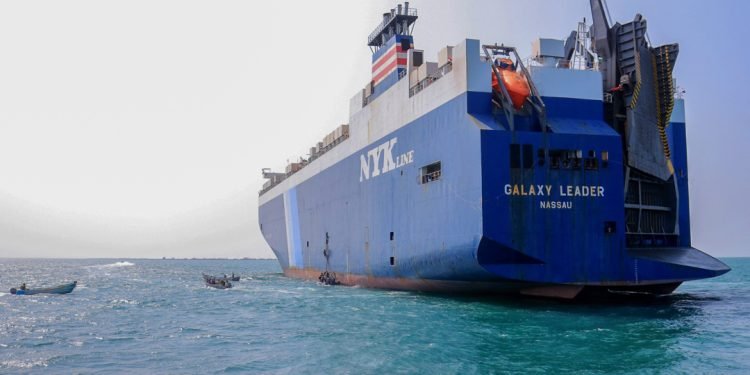In recent months, the Houthi Yemen Red Sea crisis has emerged as a significant geopolitical challenge, casting a shadow over the smooth functioning of global logistics and supply chains. This crisis, rooted in regional conflicts, has triggered ripple effects that reverberate across the maritime domain, posing challenges to the movement of goods and affecting international trade routes.
Background of the Crisis
The Houthi rebels, engaged in a longstanding conflict in Yemen, have escalated their activities in the Red Sea region, particularly around the strategic Bab el-Mandeb strait. This narrow waterway, connecting the Red Sea to the Gulf of Aden, is a crucial chokepoint for maritime trade, facilitating the transit of millions of barrels of oil and a substantial portion of global trade.
Disruption to Shipping Lanes
The crisis has led to increased volatility in the Red Sea, impacting the safety and security of shipping lanes. Several incidents, including attacks on vessels and the use of explosive-laden boats, have heightened concerns among shipping companies and governments alike. The threat of piracy and other illicit activities has forced ships to reconsider their routes, leading to delays and increased operational costs.
Impact on Global Supply Chains
As the crisis escalates, global supply chains face the brunt of disruptions. The Red Sea, a key route for transporting goods between Europe, Asia, and the Middle East, is now fraught with uncertainties. Shipping companies are grappling with the need to reroute vessels, choose alternative paths, or even consider bypassing the Suez Canal, resulting in longer transit times and increased shipping costs.
Rising Costs and Uncertainties
The increased risks associated with the crisis have led to rising insurance premiums for vessels operating in the region. Shipping companies are now factoring in additional costs to cover security measures and potential delays. The uncertainties surrounding the crisis make it challenging for businesses to plan and execute logistics operations seamlessly.
Strategies for Mitigation
In the face of these challenges, logistics stakeholders are adopting various strategies to mitigate the impact of the Houthi Yemen Red Sea crisis:
- Route Diversification: Companies are exploring alternative shipping routes to minimize exposure to the crisis. This includes evaluating routes around the Cape of Good Hope or utilizing the Northern Sea Route.
- Enhanced Security Measures: Shipping companies are investing in enhanced security measures for vessels transiting the affected areas. Collaborations with regional security forces and international naval patrols are being explored to safeguard maritime traffic.
- Real-time Monitoring and Communication: Real-time monitoring of the situation in the Red Sea allows shipping companies to adapt quickly to changing circumstances. Effective communication channels between vessels, port authorities, and relevant stakeholders are crucial for swift response to emerging challenges.
The Path Forward
The Houthi Yemen Red Sea crisis underscores the vulnerability of global logistics to geopolitical tensions. As the situation evolves, a collaborative effort involving governments, international organizations, and the private sector is essential to ensuring the security of maritime trade routes. Businesses operating in the logistics and supply chain arena must remain agile, resilient, and proactive in navigating these challenging times.
In conclusion, while the Houthi Yemen Red Sea crisis presents formidable challenges to global logistics, it also prompts the industry to innovate and strengthen its risk management capabilities. As we collectively navigate these turbulent waters, a coordinated and strategic approach will be paramount to safeguarding the stability and reliability of the global supply chain.























